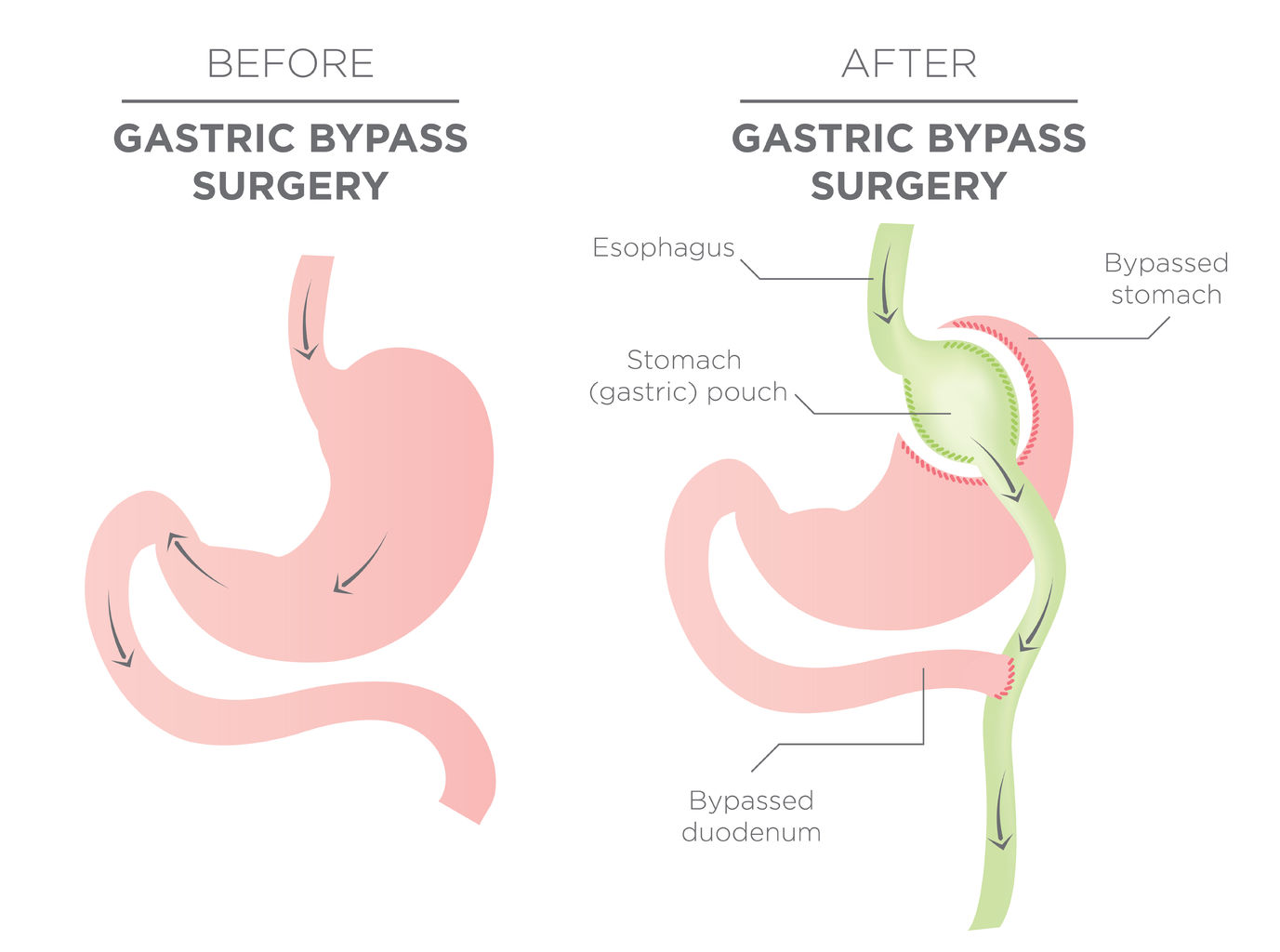Obesity with its associated comorbid conditions such as hypertension, diabetes, dyslipidemia, sleep apnea, etc. is one of the significant health problems of the 21st century. Obese people battle with many diseases live a life of poor quality, face discrimination and stigmatization at work, schools, and other public places and live in fear of dying at an earlier age than their healthy weight peers. It is therefore not surprising that many of them are seeking a practical weight loss solution.
Gastric bypass surgery is a weight loss surgery with proven effectiveness and safety. It is one of the most common weight loss operations performed today in the field of bariatric surgery. Both restrictive and malabsorptive components are combined to achieve the desired result.
In gastric bypass surgery, the stomach size is reduced by creating a pouch and bypassing a more significant portion of it. The small intestine is then connected to this small stomach pouch. Also, the intestine is re-aligned in a way that significant length of it is excluded from digestion and absorption. The overall effect of this anatomical alteration is a reduction in food intake as well as absorption of nutrients.
Each surgical procedure is with its indications and contraindications. Surgeries are done only when there is a need for it and in the absence of factors that make it riskier. Gastric bypass surgery is therefore not an exception. Although there is no universally acceptable indication, there are requirements that must be met before a patient is subjected to gastric bypass surgery. The following are the requirement that must be fulfilled before gastric bypass surgery.
Your body mass index (BMI) which is calculated by dividing your body weight (kg) by the square of your height (m) should be greater than 40kg/m2 OR BMI higher than 35kg/m2 with the presence of one or more obesity-associated disease conditions. These disease conditions include hypertension, type 2 diabetes mellitus, dyslipidemia, sleep apnea, osteoarthritis, etc. Gastric bypass surgery can also be done for obese individuals with a BMI higher than 35kg/m2 in the presence weight-induced physical problems that interfere with activities of daily living (Pentin & Nashelsky, 2005). For those who have undergone one form of weight loss therapy or the other with no satisfactory result and in the presence of high morbidity/mortality risk, gastric bypass surgery may be indicated.
Some health conditions may make gastric bypass surgery a risky procedure. These conditions need to be treated and the patient optimized before surgery. Examples include contraindication to general anesthesia, pregnancy, esophagitis, psychiatric illness, drug addiction, etc. To be a candidate for gastric bypass surgery, the above conditions must be met. The patient must be fit for surgery, and other comorbidities must be optimized.
Gastric bypass surgery must be supplemented with dietary and lifestyle adjustments to obtain a maximal result. A candidate going for gastric bypass surgery must, therefore, be seen to have complied with the pre-operative exercise and dietary plans and demonstrated the readiness to sustain them after surgery. The client must be psychologically ready to go through the weight loss journey.
References
- Petin, P. L., & Nashelsky, J. (2005). What are the indications for bariatric surgery? – PubMed – NCBI. Retrieved from https://www.ncbi.nlm.nih.gov/pubmed/16009096











